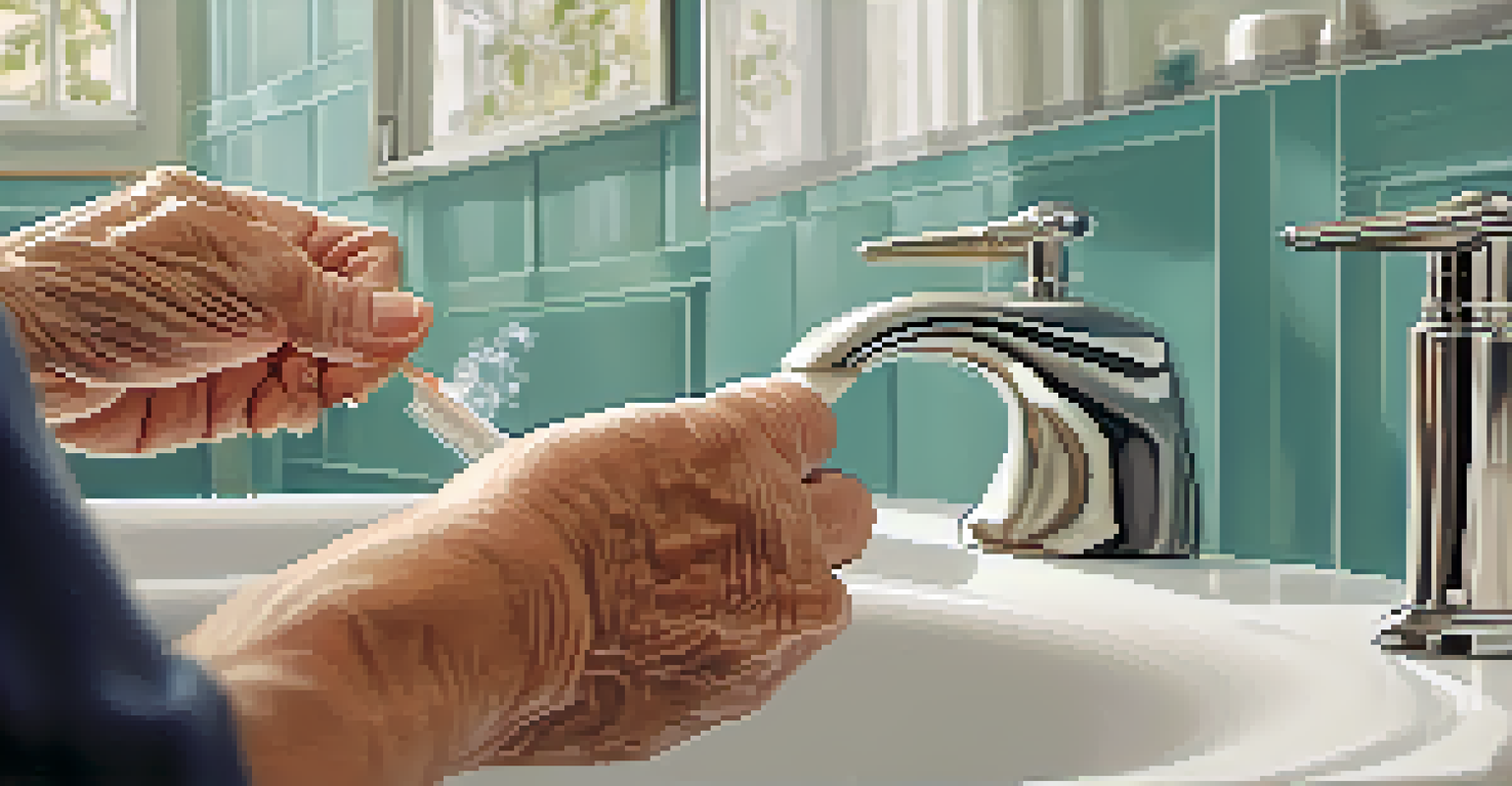The Importance of Oral Health in the Aging Population

The Link Between Oral Health and Overall Well-Being
Oral health plays a vital role in our overall health, especially as we age. Poor dental hygiene can lead to various systemic diseases, including heart disease and diabetes. This connection highlights the importance of maintaining oral health to ensure a better quality of life for seniors.
Oral health is a window to your overall health.
When older adults neglect their oral hygiene, they may experience complications that extend beyond their mouths. For instance, untreated gum disease can increase inflammation throughout the body, potentially affecting heart health. Therefore, seniors should prioritize regular dental check-ups and good oral care routines.
Moreover, good oral health contributes to confidence and social interactions. Seniors with healthy teeth and gums are more likely to engage in social activities, enhancing their mental health and overall happiness. It’s clear that oral health is closely tied to one's emotional and physical well-being.
Common Oral Health Issues Faced by Seniors
As we age, our bodies go through various changes, and our oral health is no exception. Seniors often face issues such as dry mouth, tooth decay, and gum disease. These problems can stem from medications, reduced saliva production, or simply the natural aging process.

Dry mouth, or xerostomia, is particularly troublesome for older adults, as saliva is essential for neutralizing acids and washing away food particles. Without adequate saliva, the risk of cavities and oral infections increases significantly. Seniors should consult their healthcare providers for remedies to alleviate this condition.
In addition to dry mouth, many seniors experience tooth loss, which can affect their ability to eat and enjoy food. This can lead to nutritional deficiencies, as they may avoid certain foods that are hard to chew. Regular dental visits can help address these issues before they escalate.
The Role of Nutrition in Oral Health
Nutrition plays a critical role in maintaining oral health, especially for the aging population. A balanced diet rich in vitamins and minerals helps strengthen teeth and gums. Nutrients like calcium and vitamin D are essential for bone health, including the jawbone that supports teeth.
The mouth is the gateway to the body, and it’s essential that we maintain oral health to ensure overall well-being.
Seniors should focus on incorporating foods that promote oral health into their diets. Crunchy fruits and vegetables, such as apples and carrots, can stimulate saliva production and act as natural cleansers for teeth. Additionally, dairy products provide calcium, which is vital for strong teeth.
Moreover, hydration is key. Drinking plenty of water helps combat dry mouth and keeps the mouth moist, reducing the risk of cavities. By making mindful food choices, seniors can significantly improve their oral health and overall wellness.
The Impact of Medications on Oral Health
Many seniors take medications that can inadvertently affect their oral health. Common side effects include dry mouth and gum swelling, which can complicate oral hygiene practices. It’s essential for seniors to be aware of these side effects and discuss them with their healthcare providers.
For instance, medications for high blood pressure, depression, and allergies can contribute to dry mouth. This condition can increase the likelihood of cavities and other dental issues, making it crucial for seniors to maintain a diligent oral care routine. Staying informed can help mitigate these risks.
If medication side effects are impacting oral health, seniors should consult their dentist or doctor for alternatives or solutions. Simple adjustments, such as using saliva substitutes or adjusting the timing of medication, can make a significant difference.
The Importance of Regular Dental Visits
Regular dental check-ups are essential for seniors to maintain good oral health. These visits allow dentists to identify potential problems early on, preventing more significant issues down the line. For older adults, routine examinations can be lifesaving.
During these visits, dentists can provide professional cleanings, which are crucial for removing plaque and tartar that regular brushing might miss. Additionally, dental professionals can offer tailored advice on oral hygiene practices specific to seniors’ needs, helping them stay on track.
Moreover, regular visits help build a relationship between the dentist and the patient. This familiarity can lead to increased comfort and willingness to discuss any concerns, ultimately promoting better oral health outcomes.
Oral Hygiene Practices for Seniors
Establishing a solid oral hygiene routine is crucial for seniors to keep their mouths healthy. This includes brushing twice a day with fluoride toothpaste and flossing daily to remove food particles and plaque. Such practices can significantly reduce the risk of cavities and gum disease.
Using a soft-bristled toothbrush can make brushing more comfortable, especially for those with sensitive gums. Seniors should also consider electric toothbrushes, which can be easier to handle and more effective at cleaning teeth. It's all about finding what works best for individual needs.
Additionally, seniors should not forget to clean their dentures or dental appliances if they use them. Proper cleaning and care can prevent oral infections and ensure these devices fit well, promoting comfort and functionality.
Empowering Seniors for Better Oral Health
Empowering seniors to take charge of their oral health is essential for fostering independence and confidence. This can be achieved through education about the importance of oral hygiene and the impact of oral health on overall well-being. Knowledge is a powerful tool.
Community programs and resources can help raise awareness and provide support. Workshops on proper oral hygiene techniques or nutrition can encourage seniors to prioritize their dental health actively. When seniors feel informed, they are more likely to engage in better health practices.

Family members and caregivers also play a crucial role in supporting seniors' oral health. Encouraging regular dental visits and helping them maintain their oral care routine can make a significant difference. Together, we can create a supportive environment for seniors to thrive.